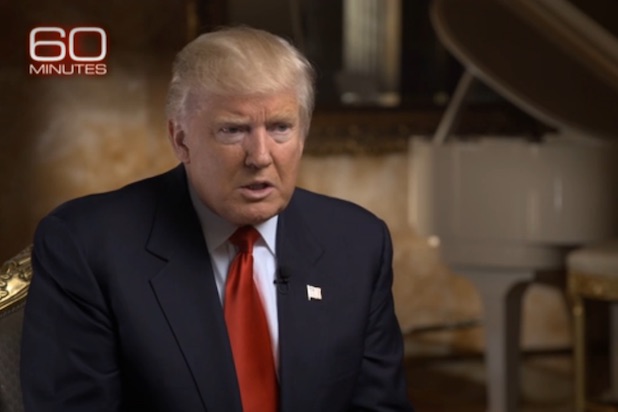
|
U.S. President-elect Donald Trump took steps Tuesday to distance himself from the far right in a wide-ranging interview, during which he spoke of climate change, denied any possible conflict of interest between his business and the presidency, and continued his attacks on the media. In one of his few outings from Trump Tower, the president-elect visited The New York Times headquarters for over an hour to be interviewed by journalists of the daily, one of his favorite targets when slamming the press. At the meeting, Trump expressed his rejection of the extreme right-wing movement known as the “alt-right,” which strongly supported his candidacy. “I disavow the group,” the next U.S. president said, adding that he didn’t believe he did anything to energize a movement whose fundamental value is white nationalism. Trump defended against critics the man who will be his chief strategist, Stephen Bannon, whose appointment has been harshly attacked by Democrats and by much of the media precisely for his ties to the alt-right. “If I thought he was racist, or alt-right…I wouldn’t even think about hiring him,” Trump said. Bannon gained fame as head of the Breitbart News Network, one of the far right’s favorite media in the United States and whose sensationalist reporting revs up racist, anti-immigrant and misogynist attitudes. For Trump, Breitbart is just another media outlet that covers “stories like you cover stories,” he told The Times’ journalists. Asked about a far-right conference in Washington where people were seen making Nazi salutes and celebrating his election win, Trump said he rejected and condemned it. The president-elect also used the interview to defend himself against those who say his businesses abroad can lead to a conflict of interest when he takes over the White House next January. “The law’s totally on my side. The president can’t have a conflict of interests,” said Trump, who confirmed that he intends to hand over control of his company to his adult children and who looked annoyed about how he and his family are being watched on that score. Trump insisted that his company has little importance compared to his new responsibilities, but dismissed the idea of separating himself from it, which would be almost impossible because it is made up of real estate properties. At the same time, he admitted that his victory in the elections has certainly made his business “a hotter brand than it was before,” and said his hotel in Washington has to be a much more valuable asset than it was before the elections. On the matter of climate change, about which he had previously said he was considering America’s withdrawal from international agreements, he appeared a little more thoughtful. “I’m looking at it very closely. I have an open mind to it,” he said about the option of pulling out of the Paris accord on climate change as he promised during the campaign, even admitting that clean air and “crystal clear water” are extremely important. |
Trump Distances Himself from Far Right, Continues to Attack the MediaLatin American Herald Tribune November 23, 2016 |



Expositores: Oscar Vidarte (PUCP) Fernando González Vigil (Universidad del Pacífico) Inscripciones aquí. Leer más
Una retrospectiva para entender los próximos cuatro años. Leer más
En la conferencia se hará una presentación de los temas más relevantes del proceso de negociación se llevó a cabo desde el 2012, así como del acuerdo de paz firmado entre el Gobierno colombiano y la guerrilla de las FARC a finales del 2016. Se analizarán los desafíos y las... Leer más
El Observatorio de las Relaciones Peruano-Norteamericanas (ORPN) de la Universidad del Pacífico es un programa encargado de analizar y difundir información relevante sobre la situación política, económica y social de Estados Unidos y analizar, desde una perspectiva multidisciplinaria, su efecto en las relaciones bilaterales con el Perú.
© 2026 Universidad del Pacífico - Departamento Académico de Humanidades. Todos los derechos reservados.

